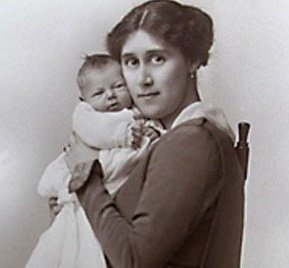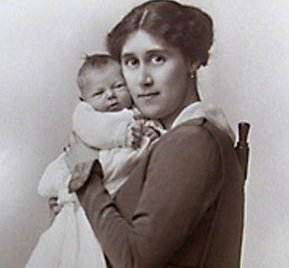 The times have changed indeed! The times, they are a-changing truly. O tempora; O Mores! In the year 1914, the Court of Appeal of England delivered a decision[1] that would have been unthinkable in this era of #Metoo; a decision that was deeply sexist and stood as a notorious poster child for misogyny. Women since have had to overcome notable hurdles like the right to vote and the right to fight for and choose contraceptive methods among others.
The times have changed indeed! The times, they are a-changing truly. O tempora; O Mores! In the year 1914, the Court of Appeal of England delivered a decision[1] that would have been unthinkable in this era of #Metoo; a decision that was deeply sexist and stood as a notorious poster child for misogyny. Women since have had to overcome notable hurdles like the right to vote and the right to fight for and choose contraceptive methods among others.
Just last week, the United States celebrated Equal Pay Day, bringing to light the fact that many many women continue to be paid less than their male colleagues for work of equal or comparable value. Sometime last year, BBC’s Carrie Gracie had to resign her position as the China Bureau Chief because her male colleagues of similar rank were being paid more.
Maybe, even sadder and more unfortunate than the decision in Bebb, is the fact that to this day inequality and discrimination of women based solely on their gender persists. The revelations of sexual impropriety on the part of male supervisors, and heads and directors sent such shockwaves, especially in the entertainment industry in the US, that continue to reverberate, notable amongst which is the collapse of Weinstein Studios and the resignation of notable figures like Matt Lauer and the remake of a portion of a movie in which Kevin Spacey starred.
Our own legislature stands as a towering example, with only thirty-five (35) of the two hundred and seventy-five (275) parliamentarians being women.
In December 1912, Gwyneth Bebb, Maud Ingram, Karin Costelloe and Nancy Francis Nettlefold filled up the admission forms of the Law Society, intending to present themselves[2] at its preliminary examination on February 5 and 6, 1913, with a view to becoming bound by articles of clerkship and ultimately being admitted as solicitors. The Law Society returned the fee they had enclosed in their application packet and told them that if they presented themselves to write the examination, they would be refused, stating that because they were women, they could not be admitted into the legal profession and as solicitors of the Supreme Court.
Gwyneth Bebb, instituted an action against the Defendant Law Society seeking an order of mandamus or an order in the nature of a mandamus, requiring the Law Society to admit her to the preliminary examination. She argued that because she was a person within the meaning and intendment of the Solicitor’s Act, 1843, as amended, it was unlawful for the Defendant Law Society to proceed to refuse her admission to sit the preliminary examination. The Defendant Law Society countered, saying simply that its refusal to admit her was in accordance with law, and further that Plaintiff’s Statement of Claim revealed no cause of action.
The matter came before Mr. Justice Joyce who, interestingly, had in a previous case, refused admission to Betha Cave into the Grays Inn in 1903.
The matter that fell for determination was whether or not the Plaintiff was a “person” within the meaning of the Solicitor’s Act, 1843? Section 48 of the Solicitors Act, 1843 reads: “every word importing the masculine gender only shall extend and be applied to a female as well as male” unless “there be something in the subject or context repugnant to such construction.”
Joyce J., dismissed the action, and on appeal, his decision was affirmed by the Court of Appeal, coram Cozens-Hardy, M.R., Swiffen Eady L.J., and Phillimore L.J.
Despite this rather clear statutory provision, the Court held that there was at common law, a genera; disability on the part of a woman to be an attorney-at-law. The matter seemed novel to the Court, presenting uncharted and choppy waters which they were loath to make any monumental pronouncements upon. As the court noted, “no woman has ever been an attorney-at-law. No woman has ever applied to be, or attempted to be, an attorney-at-law.” In determining what the law is, the Court of Appeal took a decision that even the most ardent and dyed-in-the-wool adherent of the Purposive Approach to interpretation would have been at great pains to follow, ie choosing long uniform and uninterrupted usage and course of dealing over the clear, unambiguous provisions of a statute of parliament.
Cozens-Hardy M.R. shockingly pronounced that “I decide this case simply on the ground that, in my opinion, there was at the date of the passing of the Act of 1843, a disability on the part of a woman to be an attorney, and that, that being so, the Act of 1843 confers no fresh and independent right, because it does not destroy a pre-existing disability.”
The Court of Appeal dismissed the Appeal, reaffirming, therefore, the decision of Joyce J. What is heartbreaking is that Cozens-Hardy M.R. himself noted that: “We have been asked to hold, what I for one quite assent to, that, in point of intelligence and education and competency women – and in particular the applicant here, who is a distinguished Oxford student – are at least equal to a great many, and, probably, far better than many, of the candidates who will come up for examination, but that is really not for us to consider.”
Women continued to be denied entry into the legal profession to practice as solicitors until the passing in 1919 of the Sex Disqualification (Removal) Act, 1919. In our own motherland, as a marker of the truly great strides made by women in the profession, the then President of the Republic, JA Kufuor, appointed[3] Justice Georgina Theodora Wood as the first female Chief Justice, followed again by the appointment of her predecessor, another female, Justice Sophia Abena Boafoa Akuffo.[4]
It is quite sad that Gwyneth Bebb could not accomplish her desire to become a lawyer as a result of her rather early death in 1921 of placenta previa just before she got to celebrate her 32nd birth anniversary. However, being a distinguished Oxford student, there would have been no doubt of this. Indeed, Deborah Orr of the Guardian newspaper said on Monday, April 13, 2015, “Gender bias – any identity bias – is a wanton waste of human potential.”
I would conclude by quoting a woman who herself broke the glass ceiling many years after Gwyneth Bebb in the Israeli state. Golda Meir said: “that women are better than men, I cannot say, but what I can say is they certainly are not worse.”
[1] Bebb v. Law Society [1914] 1 CH 286
[2] All four women had studied jurisprudence at both Oxford and Cambridge
[3] She was sworn into office as the Republic’s 12th Chief Justice and first female on June 15, 2007.
[4] Appointed Chief Justice of the Republic of Ghana on June 19, 2017



Leave a Reply